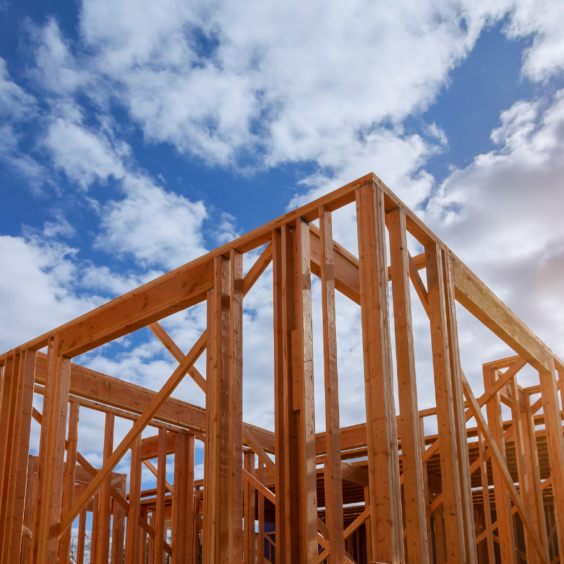 In Liberty Surplus Insurance Corp. v. Kaufman Lynn Construction Inc., the Eleventh Circuit Court of Appeals held that a “course of construction exclusion” in a commercial general liability precluded coverage for water damage caused by a hurricane during a construction project. However, the court found that the insured had standing to assert a claim for reformation of the insurance policy due to mutual mistake, even though the insured was not necessarily making a claim under the reformed contract.
In Liberty Surplus Insurance Corp. v. Kaufman Lynn Construction Inc., the Eleventh Circuit Court of Appeals held that a “course of construction exclusion” in a commercial general liability precluded coverage for water damage caused by a hurricane during a construction project. However, the court found that the insured had standing to assert a claim for reformation of the insurance policy due to mutual mistake, even though the insured was not necessarily making a claim under the reformed contract.
In July 2018, JM Family Enterprises hired Kaufman Lynn Construction to serve as the general contractor for the construction of JM Family’s new headquarters in Deerfield Beach, Florida. Kaufman obtained a commercial general liability policy from Liberty Surplus Insurance to insure Kaufman and its subcontractors from third-party claims arising under the construction project.
The policy included a course of construction exclusion, which stated that the policy did not apply to “any ‘property damage’ at or to any project insured under [the] policy during the course of construction until the project is completed.” Notably, the description of the project in the course of construction exclusion differed from the description in Kaufman’s insurance application. Specifically, the exclusion omitted several buildings and failed to note the project would proceed in two phases, all of which was included in the insurance application.
By November 2020, Kaufman completed several buildings of the new headquarters, including the office buildings and dining hall. However, on November 8, 2020, these completed buildings sustained approximately $3.3 million in water damage due to Tropical Storm Eta.
Kaufman sought indemnification from Liberty for the water damage, but Liberty denied coverage, citing the course of construction exclusion. Liberty then filed a declaratory action in district court against Kaufman and a subcontractor, seeking a declaration that the exclusion extinguished Liberty’s obligations under the policy. In response, Kaufman counterclaimed for declaratory relief and breach of contract, as well as for reformation of the insurance policy due to mutual mistake regarding the project’s definition in the course of construction exclusion.
The district court granted summary judgment in favor of Liberty, holding that the course of construction exclusion barred coverage because the entire project was not complete when the buildings sustained water damage. The court also dismissed Kaufman’s counterclaim for reformation, holding that Kaufman lacked Article III. It reasoned that Kaufman had no cognizable injury because (1) Kaufman was not seeking a claim under the policy for the omitted buildings and (2) the course of construction exclusion would exclude coverage even if the district court changed the project description in the exclusion to the description from the insurance application.
The Eleventh Circuit first addressed Kaufman’s reformation claim and disagreed with the district court, holding that Kaufman did have standing under Article III. The court determined that, under Florida law, a party does not need to make a claim under a policy before seeking reformation. In support of its position, the court cited Coastal States Life Insurance Co. v. Raphael, 183 So. 2d 274 (Fla. 3d DCA 1966), in which the Florida appellate court permitted the reformation of a life insurance policy, even though the insured was still alive and no claim had been made under the policy. The court also determined, under the assumption that Kaufman would succeed on the merits of the reformation claim, that Kaufman had a cognizable Article III injury, as Kaufman received a policy different from the one it bargained for and paid premiums.
However, the Eleventh Circuit agreed with the district court as to Liberty’s denial of indemnification under the policy. Here, the court noted that the policy at issue was a general commercial liability policy, which is a policy to protect the insured from liability for damage or harm to others from its own defective work or products. The court distinguished this from a builder’s risk policy, which covers losses sustained during construction.
The court then turned to the course of construction exclusion itself and addressed whether this exclusion applied to Kaufman’s claim. Here, it found the language “until the project is completed” as critical to the exclusion. Although “project” and “completed” were not defined under the policy, the court looked to the “general usage” of the terms and specifically as defined in the Oxford English Dictionary. The court noted that “project” was defined as “planned or proposed undertaking; a scheme.” Further, the definition of “completed” means “to bring to an end, finish, conclude.”
Applying these definitions, the Eleventh Circuit held that the exclusion applied until the entire project was completed. Although several of the buildings were finished, there was no dispute that the entire project (i.e., demolition of all the old buildings and completion of the new ones) was not complete. The court further held that Liberty was entitled to summary judgment even if the exclusion included the description of the project that Kaufman sought to include in its reformation claim. Accordingly, because the entire construction project was not complete, the course of construction exclusion applied and there was no coverage for the water damage under the Liberty policy.
